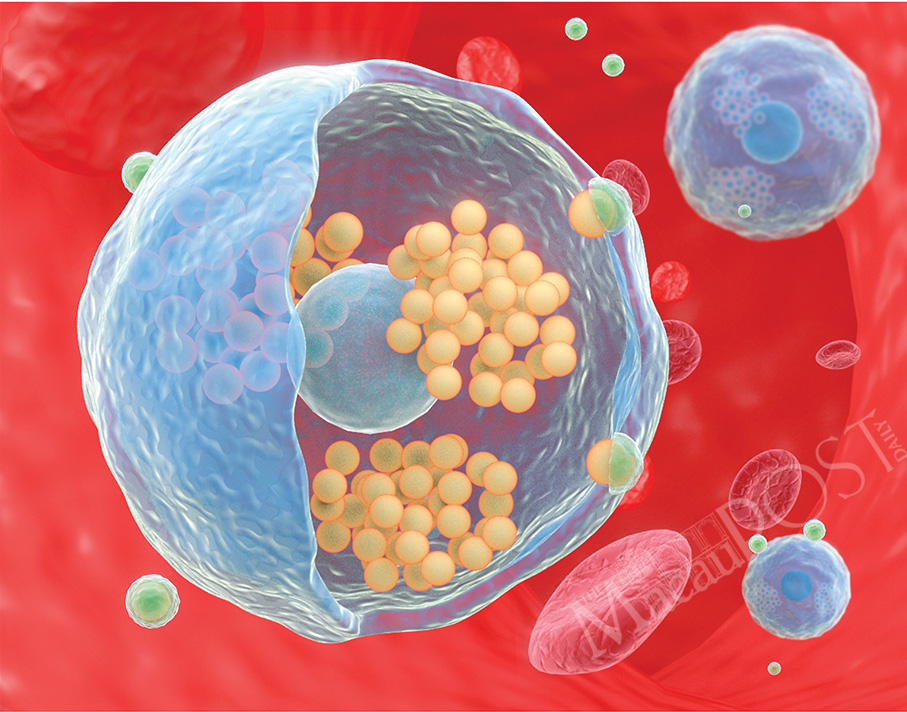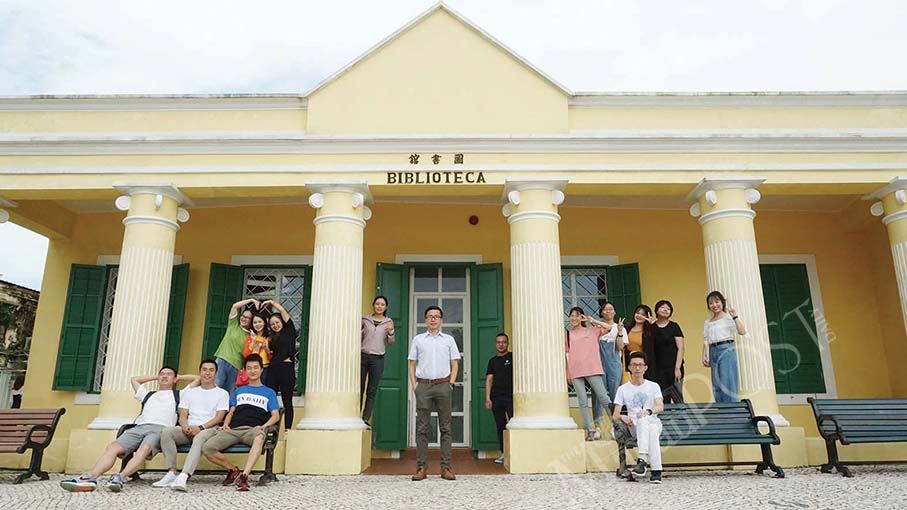A research group led by the University of Macau’s (UM) Institute of Chinese Medical Science’s Associate Professor Wang Ruibing has developed a “bacteria-mimetic supramolecular nanomedicine by immune cells in vivo, which can realise cell-hitchhiking delivery to solid tumours in targeted cancer therapies”, the public university announced in a statement yesterday.
Titled “In Vivo Hitchhiking of Immune Cells by Intracellular Self-assembly of Bacteria-mimetic Nanomedicine for Targeted Therapy of Melanoma”, the statement noted that the findings were published in Science Advances, a world-renowned multidisciplinary journal.
The statement pointed out that cells have received rising attention in recent years as potential drug carriers because of their “high biocompatibility, long systemic circulation, and accumulation in specific tissues”.
Complicated and time-consuming processes that may damage cells and cause contamination are often involved in the in vitro preparation of cell-based carriers, the statement said, while “immune rejection may occur when cell-based formulations are applied to different individuals”.
It was then important to develop a new formulation of medicine that may “hitchhike cells directly in vivo to realise cell-hitchhiking drug delivery”, according to the statement.
The team developed an “in vivo strategy to efficiently and stably hitchhike phagocytic immune cells via supramolecular self-assembly of bacteria-mimetic nanomedicine intracellularly” for improved immune cell-based drug delivery. The statement added that in response to tumour inflammation, “immune cells carry intracellular nanomedicine aggregates to the tumour tissues”.
The statement pointed out that “initial photothermal treatment of the tumour would induce tumour damage and enhance the tumour inflammatory signals, thereby recruiting more immune cells (including carriers that contain intracellular nanomedicine aggregates)”, leading to “a significantly improved accumulation of nanomedicine in the tumour for further photothermal treatment and immunotherapy”.
The statement said that Prof Wang is the lead corresponding author, while UM Distinguished Professor Simon Lee Ming Yuen is the co-corresponding author.
The study’s co-first authors are postdoctoral fellow Gao Cheng and master’s student Wang Qingfu, while important contributions were made by UM PhD students Li Junyan and Cheryl Kuong, research assistant Wei Jianwen, and postdoctoral fellow Xie Beibei, according to the statement.
The study was supported by various entities such as the Dr Stanley Ho Medical Development Fund and the National Natural Science Foundation of China. The full version can be viewed at https://www.science.org/doi/10.1126/sciadv.abn1805.

This image provided by the University of Macau (UM) yesterday shows bacteria-mimetic nanomedicine hitchhiking immune cells in vivo.

This undated handout photo provided by UM yesterday shows Prof Wang Ruibing (centre) and the research team posing outside the Public Library in Coloane village.






